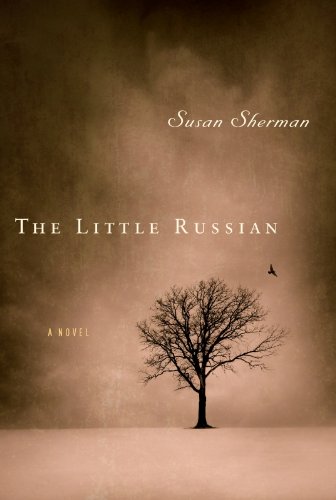The Little Russian
Only the courage and endurance of the Jews of Russia match the suffering of the Jews of Russia. Susan Sherman’s ambitious first novel attempts to display all of this, and in part succeeds.
The novel begins with a pogrom set off by a mere accident, one person pushing another, who pushes another, who spills his meat pie; and out of this rises a wave of murder and rape against which the Jews have no power except to survive.
The shock fades into the ordinary story of Berta Lorkis, who has been living with rich cousins in Moscow, but now, to her dismay, must go home to a modest life in the Ukraine. But this is the beginning of the 20th century. And Berta is about to live through a horror story all the more awful because we already know what it is.
Sherman’s sprawling research carries the book. She weaves the comfort and complacence of the wealthier people together with the grim desperation of the poor, the comforting, sustaining rituals of the Jews together with the hysterical ignorance of the larger society that vents all its terror on them, slaughter together with a sustaining ritual life. Great scenes abound – a deadly stampede to board a train; flights through snow and icy rivers toward some illusion of safety; tender moments of faith and hope.
Where the novel falls down is in its chief character. Berta is a witness, a victim of great events, not the hero of them. She never grows into the indomitable figure you want her to be. Her husband and son engage you much more, brave and resourceful, but they are peripheral. The story wants to be about Berta, but she never fills the available space.










